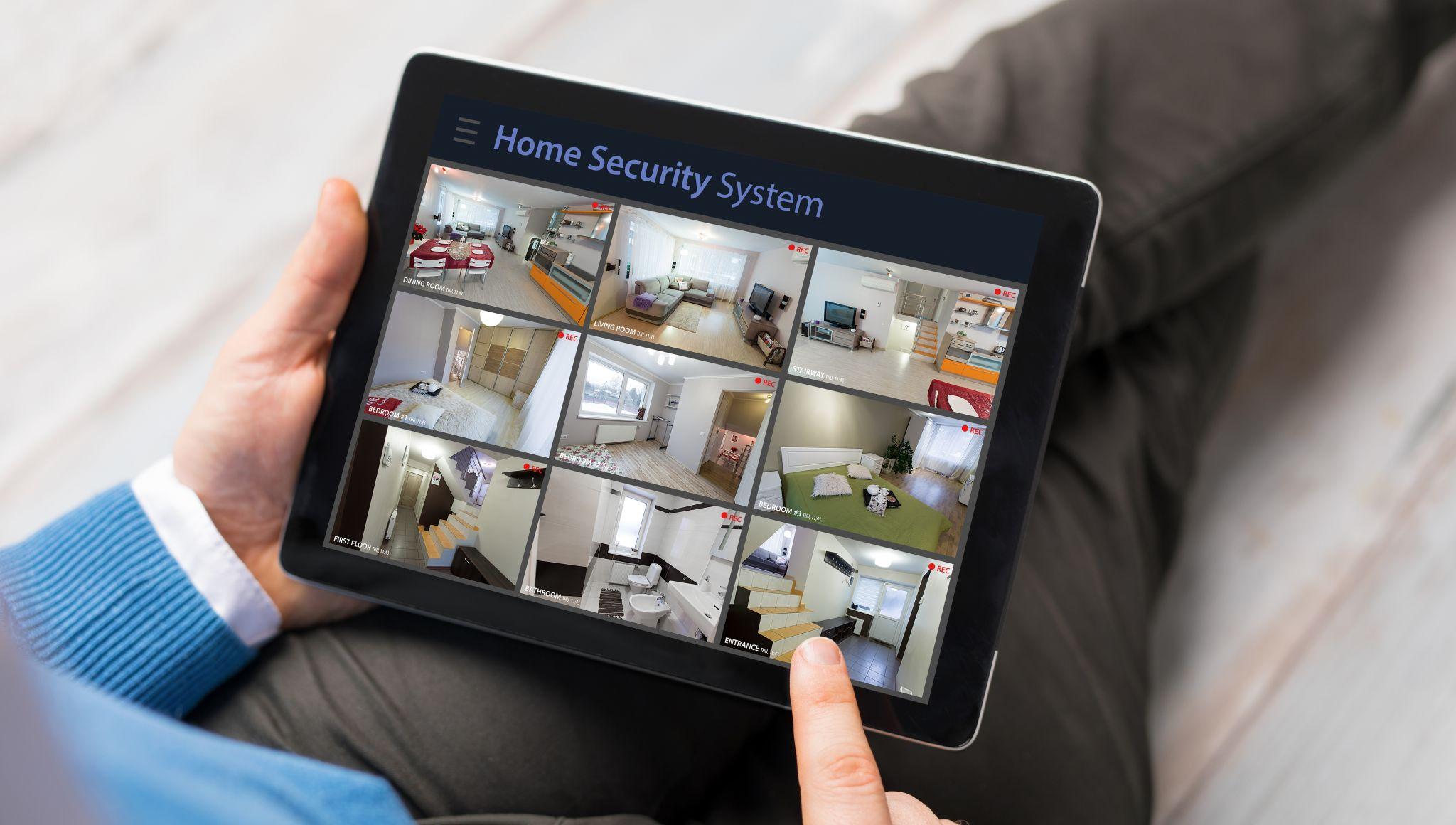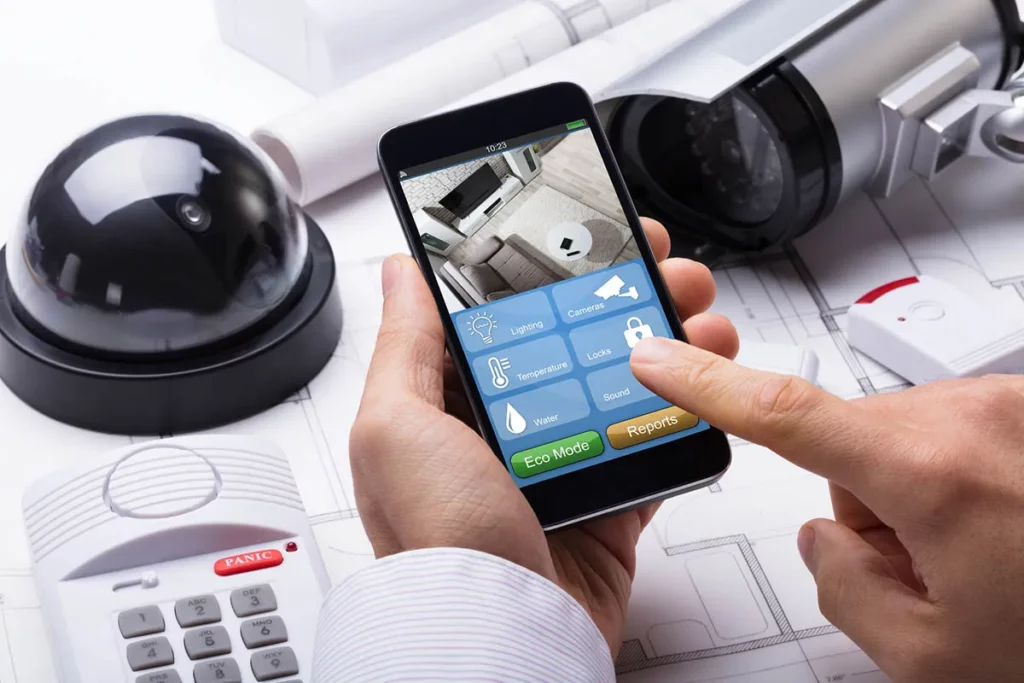
In an ever-evolving world where crime rates can fluctuate unpredictably, ensuring the safety of your home is a top priority for many individuals and families. Residential security systems have become indispensable tools for safeguarding our homes. In this article, we will explore the mechanics of these systems and how they significantly enhance home safety.
Understanding the basics of residential security systems
To appreciate the advantages of residential security systems, it is crucial to comprehend their foundational principles. These systems are designed to monitor, alert, and protect homes from potential threats, providing peace of mind to their users.
The role of security systems in home safety
Security systems play a vital role in enhancing home safety by acting as a deterrent to intruders. The presence of cameras, alarms, and motion detectors makes homes less appealing targets for those with malicious intent. Additionally, these systems can alert homeowners and authorities during a breach, allowing for swift action.
Moreover, residential security systems can offer various features such as remote monitoring and notifications, enabling homeowners to keep an eye on their property even when they’re away. This level of involvement can have a reassuring impact, making the home feel safer. The integration of mobile applications allows users to receive real-time alerts and view live feeds from their security cameras, providing an added layer of convenience and control. This technological advancement means that even while on holiday or at work, homeowners can maintain a vigilant watch over their premises, ensuring that they are always connected to their home environment.
Key components of a typical home security system
A comprehensive residential security system usually comprises several key components. These include security cameras, which allow for visual monitoring; motion sensors that detect movement; and alarm systems that activate upon unauthorised access. Each component plays a specific role in fortifying home protection.
Other elements can include door/window sensors, smart locks, and even home automation features. Integrating these components can create a web of protection around your home, making it difficult for intruders to remain undetected. Furthermore, many modern systems offer the ability to connect with other smart home devices, such as lighting and thermostats, allowing for automated responses in the event of a security breach. For instance, lights can be programmed to flash or turn on when an alarm is triggered, creating the illusion that someone is home, which can further deter potential intruders. This interconnectedness not only enhances security but also contributes to energy efficiency and convenience in daily living.
The impact of security systems on home safety
The tangible benefits of installing a residential security system are numerous. These systems not only enhance physical safety but also contribute to a general sense of well-being for residents.
Deterrence of potential intruders
One of the most significant effects of a robust security system is its deterrence factor. Homes equipped with visible security systems, such as outdoor cameras and alarm signs, are statistically less likely to be targeted by burglars. Intruders often seek the path of least resistance, and the presence of security measures prompts them to think twice.
Surveys indicate that a vast majority of burglars consider the presence of a security system before deciding on a target, further reinforcing the idea that proactive measures can deter criminal activity.
Immediate response to emergencies
In addition to prevention, security systems provide capabilities for immediate response during emergencies. Most modern systems are connected to local police and emergency services, ensuring prompt assistance when needed.
For instance, if a break-in occurs and the alarm is triggered, local authorities are alerted automatically. Time is of the essence during such incidents, and the quicker the response, the better the outcome for inhabitants and property alike.
Technological advancements in residential security systems
As technology continues to evolve, so too do the features and capabilities of residential security systems. The integration of modern technologies has revolutionised home safety, making systems more user-friendly and effective.

Smart home integration and security
The rise of smart home technology has changed the landscape of residential security. Many security systems now offer seamless integration with smart home devices such as thermostats, lights, and door locks. This allows users to create complex routines and automate their home security measures.
For instance, homeowners can programme their lights to turn on or off to simulate occupancy when they are away. Such features not only enhance security but also contribute to energy efficiency and convenience in daily life. Click here to learn about protecting your home with a trusted residential security consultant.
The rise of wireless security systems
Wireless security systems have surged in popularity, primarily due to their easy installation and adaptability. Unlike traditional wired systems, which require extensive installation work, wireless systems can often be set up by the homeowner themselves.
Moreover, many wireless systems offer enhanced connectivity through smartphone applications, allowing users to monitor their homes in real-time. This flexibility makes these systems appealing for all types of households.
Choosing the right security system for your home
With numerous options available, selecting the most suitable security system for your home can feel overwhelming. Understanding your unique needs is essential in making an informed decision.
Factors to consider when selecting a security system
Several factors should be considered when evaluating security systems. These include the size of your property, the level of crime in your area, and your specific security concerns. Moreover, think about whether you prefer a DIY system or one that requires professional installation.
Budget also plays a crucial role; understanding the long-term costs associated with system maintenance and monitoring is vital for making a sustainable choice.
Understanding the installation process
The installation process varies depending on the system you choose. DIY systems typically require minimal effort, while professional installations may necessitate scheduling with an expert. Knowing what to expect from the installation process can alleviate any uncertainties.
Regardless of the method, ensuring that all components are correctly placed and functional will guarantee the highest levels of safety and satisfaction.
The future of home safety and security systems
As we gaze into the future, it is evident that residential security systems will continue to advance and evolve. With technology moving at breakneck speed, the possibilities for improved home safety are nearly endless.
Predicted trends in residential security
Experts predict that integration with artificial intelligence and machine learning will become more common, allowing systems to adapt and respond to unique circumstances. For instance, future systems may distinguish between familiar faces and potential intruders, reducing false alarms.

Additionally, the growth of eco-friendly security systems may be on the horizon, promoting sustainability alongside safety.
How evolving technology could further improve home safety
The potential for technology to enhance home safety seems boundless. As new innovations emerge, we may see more advanced predictive analytics, enabling systems to anticipate and respond to threats before they materialise.
In conclusion, residential security systems are a vital component of modern home safety. By understanding their functions, advancements, and the various options available, homeowners can make informed decisions to protect their families and belongings effectively. As technology flourishes, so too will our ability to safeguard our homes.